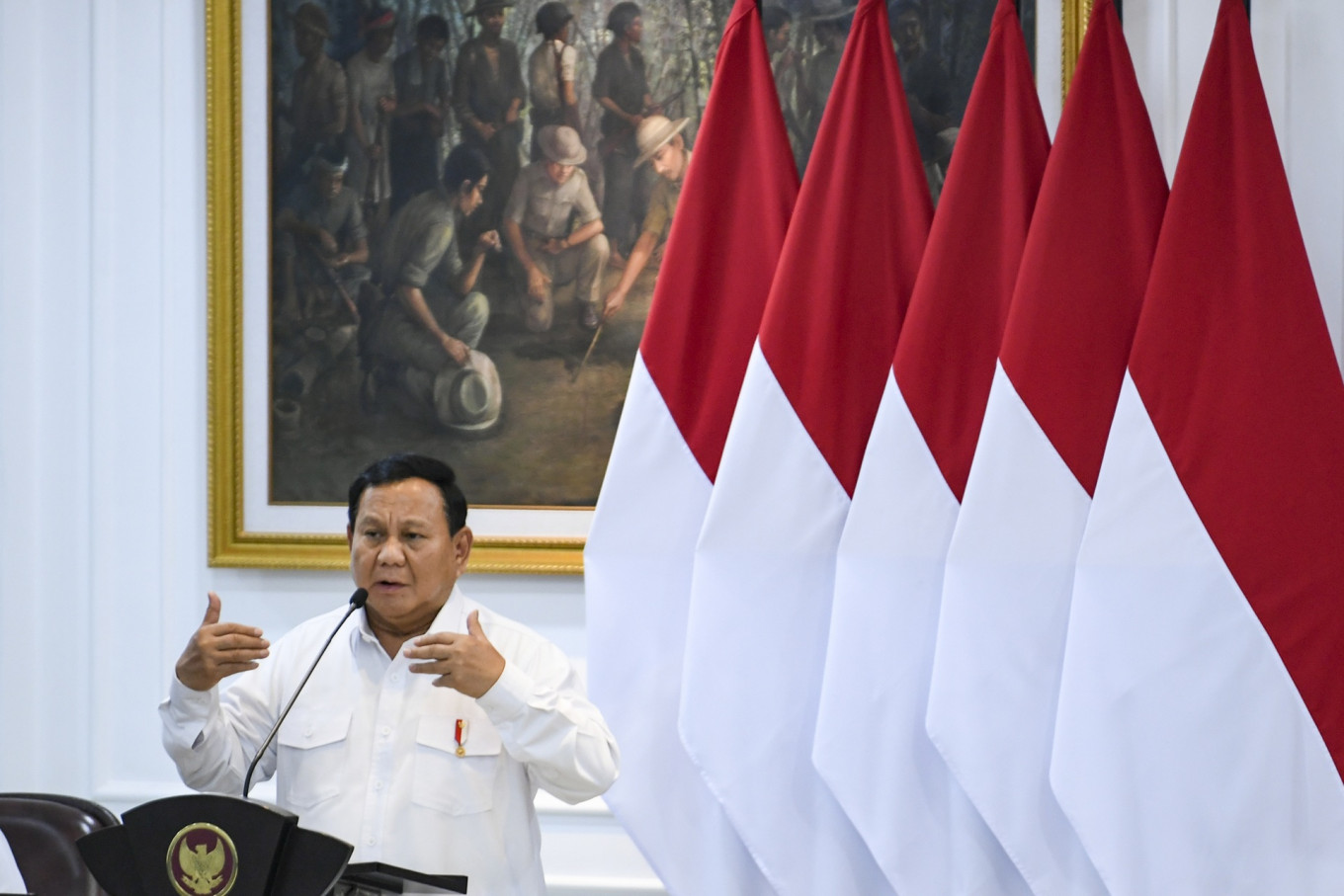Popular Reads
Top Results
Can't find what you're looking for?
View all search resultsPopular Reads
Top Results
Can't find what you're looking for?
View all search resultsPrudence in state budget
While the budget adjustment seems rational on paper, it is paramount that the government guides the implementation of the programs and manages any consequences that may arise from the fiscal action.
Change text size
Gift Premium Articles
to Anyone
T
he government has decided to reallocate Rp 306.7 trillion (US$18.9 billion) of the state budget to foster its welfare programs, in a major shift in fiscal direction this year.
The spending shift, which accounts for 8.5 percent of the 2025 budget, means there will be budget cuts from ministerial and regional expenditures and increases in welfare spending. About one-third of the budget reallocation will go to the free nutritious meals program, President Prabowo Subianto’s flagship program.
While the budget adjustment seems rational on paper, it is paramount that the government guides the implementation of the programs and manages any consequences that may arise from the fiscal action.
The Prabowo administration has claimed that the large spending on the free meals program will significantly drive economic growth by boosting domestic consumption. The program aims to reach 82.9 million schoolchildren and pregnant mothers nationwide, or about a quarter of the country's population.
In an efficient delivery system, this may be the case. But the history of past government programs has shown that poor data as well as reporting and bureaucratic inefficiency have caused frequent misallocation and corruption. The likelihood of such issues may be higher this year considering that the government has cut the budgets of local administrations, which have seen their spending on official travel reduced to create greater fiscal room for the program.
Prabowo has called for loyalty from his administration, but without careful implementation and strong law enforcement, inefficiencies are likely.
Experts have also warned of economic consequences from the welfare programs, including the free meals program. The lack of resilience of the country’s food system may lead to further dependence on imports, which will make the economy more sensitive to global shocks in supply and prices.
As the government is still experimenting with the program, with all the implementation risks, spending on the program is expected to increase. This will lead to fiscal imprudence if revenue generation does not keep pace with the expenditures.
Late last year, the government caused controversy in public by announcing a VAT increase to 12 percent to finance the state budget. The increase was later canceled, creating more pressure for the government to find other sources of revenue to finance its programs.
If the government continues to fail to improve revenue from taxes and other duties, the final effort will be to increase debt.
The government’s debt-to-gross domestic product ratio hovered at around 40 percent last year, which is still considered healthy. With failures to generate other revenues, the Prabowo administration may resort to increasing its debts to continue financing its large spending.
The Indonesian government’s hints at raising debts have been received with caution by the market. Morgan Stanley has downgraded its evaluation of Indonesia's equities to "underweight" to reflect short-term economic uncertainty caused by its fiscal policies.
Indonesian law allows the state budget to reach a debt-to-GDP ratio of 60 percent and a deficit of up to 3 percent. But the government is already considered heavily burdened with the administration inheriting an estimated debt of Rp 2.4 quadrillion, including Rp 800 trillion due in 2025.
This demands more consideration for the government to increase its debts. It should not only consider that there is a lot of room still available in the debt-to-GDP ratio. It should carefully consider whether the next decisions to increase the debt will be effective.
This means that the debt it creates should help the country’s economic performance and contribute to people’s welfare.
If the government only aims to increase economic growth by feeding people without significant effort to help them to get jobs and improve productivity, the money used in the program will only increase their appetite but not encourage them to be independent in the long run.
It is a critical time for Prabowo to make choices and let’s hope he chooses wisely.











